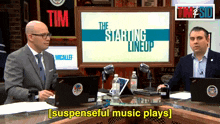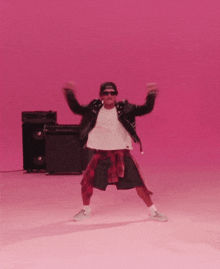Amidst one of the most significant feuds in recent hip-hop history, tensions between Drake and Kendrick Lamar escalated dramatically when a security guard was shot outside Drake’s Toronto mansion on Tuesday.
The pair first collaborated on Drake's 2011 track, “Buried Alive Interlude,” then later teamed up again on Lamar’s 2012 release “Poetic Justice” and on A$AP Rocky’s “F***in’ Problems.”
However, their friendship didn’t last long. In 2013, Lamar dissed several big-name rappers, including Drake, in his verse on Big Sean’s "Control." Lamar rapped, “I’ve got love for you all, but I’m trying to murder you. Trying to make sure your core fans never heard of you.”
Drake responded, saying, “I know good and well that Kendrick’s not murdering me, at all, in any platform.” At the 2013 BET Hip-Hop Awards, Lamar dissed Drake again during his performance and took home five awards, including Lyricist of the Year and Album of the Year.
Fast forward to last October, Drake and J. Cole released "First Person Shooter." Fans speculate that Lamar was supposed to be part of the song but turned it down, leading Drake and J. Cole to rewrite their verses to take shots at him.
In the song, J. Cole raps, “Love when they argue the hardest MC. Is it K-Dot (Lamar), is it Aubrey (Drake’s first name), or me?” He then adds, “We the big three like we started a league,” implying that he, Drake, and Lamar are the most influential rappers.
In March, Future and Metro Boomin released “Like That” featuring Kendrick Lamar. Metro and Drake had been previously throwing shots at each other because 21 Savage and Drake’s collaboration album, “Her Loss,” was receiving more praise than Metro’s album, and Metro then removed Drake’s verse off of his song, “Trance.” In “Like That,” Lamar raps “first-person shooter, I hope they came with three switches." He then states, “Motherf*** the big three, it’s just big me.”
Julio Enriquez from Wikimedia Commons
Three weeks later, Drake shot back with “Push Ups,” in which he raps “you ain’t in no big three, SZA got you wiped down, Travis got you wiped down, Savage got you wiped down.” A week after that, Drake released another diss track, “Taylor Made Freestyle,” in which he used Artificial Intelligence to include verses from Snoop Dogg and Tupac, two of Lamar’s influences, which many listeners found to be very disrespectful. In the track, Drake accuses Lamar of delaying his response due to the release of Taylor Swift’s new album, since Lamar collaborated with Swift on 1989 (Taylor’s Version). Tupac’s estate then threatened to sue Drake in response, so he removed the song from all platforms.
The beef then intensified with the release of “Euphoria,” Lamar’s six-minute diss track unleashing a series of allegations against Drake. He insults Drake’s rapping, use of AI, racial identity, and parenting, saying “I got a son to raise, but I can see you know nothing ‘bout that.” He also implied that Drake doesn't respect women, and that he tried to get “Like That” taken down from all radios and streaming platforms.
A few days later, Lamar dropped a follow-up diss called “6:16 in LA.” Fans speculated the title referenced various things: June 16 is Tupac’s birthday, Father’s Day in Canada, the release date of the show Euphoria (which Drake produces), and the date Lamar performed his first show in Toronto, Drake’s hometown.
Not even a day later, Drake hit back with an eight-minute track, “Family Matters”, in which he accuses Lamar of domestic violence and infidelity in his relationship with his fiancée and high school sweetheart, Whitney Alford.

The Come Up Show from Wikimedia Commons
The next day, Lamar launched “Meet the Grahams,” which begins with the line: “Dear Adonis (Drake’s son), I’m sorry that man is your father.” He then claims that Drake has a secret daughter, rapping, “Dear baby girl, I’m sorry that your father’s not active inside your world.” (In June of 2018, Drake was exposed for hiding his son, Adonis, for almost a year after his birth.)
Drake responded via Instagram story with: “Nahhhh hold on can someone find my hidden daughter pls and send her to me … these guys are in shambles 🤣🤣🤣.”
Less than 24 hours later, Lamar responded with “Not Like Us” in which he raps lyrics like “Say, Drake, I hear you like ‘em young” and “Tryna strike a chord and it’s prolly A minor,” now accusing Drake of pedophilia. The song’s cover art showed 13 s*x offender pins on a mansion, causing shock among fans.
On his last and (so far) final diss, Drake responded the next day with “The Heart Part 6,” referencing Lamar’s “The Heart” series, in which he gets deep and shares parts of his life with his fans. In the diss, Drake denies Lamar’s allegations against him and says that he doesn’t have a secret daughter.
As the feud between these two rappers continues, fans are left wondering if there will be any resolution or if it will only get worse. Both Drake and Kendrick Lamar have loyal followings that eagerly consume each new release, and the tension between them has only heightened the anticipation for their future works. Whether this beef will continue or fizzle out over time, one thing is certain: the rivalry between Drake and Kendrick Lamar has left an indelible mark on hip-hop history.










.jpg)
.jpg)


